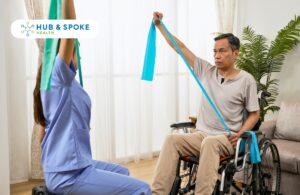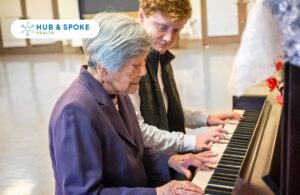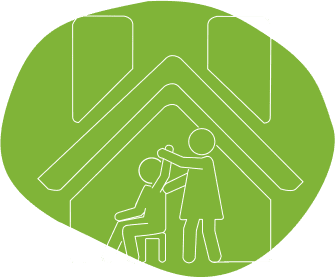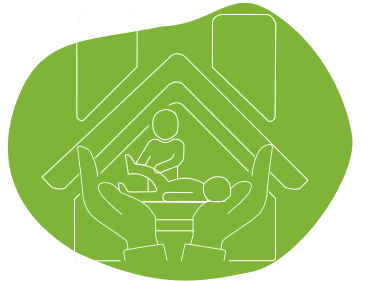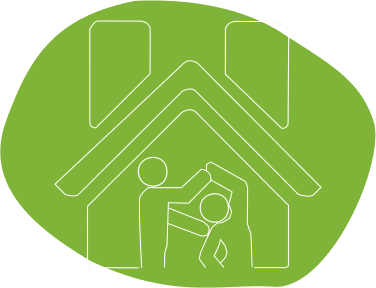At Hub And Spoke Health, we provide NDIS physiotherapy home visits to participants who prefer to have services performed in the comfort of their own home or aged care facility since it is more convenient and practical.
From a clinical standpoint, sessions at home often make more clinical sense than clinic sessions because we can see the participant in their natural environment and make real-time changes and recommendations that are safe and immediate.
We work closely with your doctor, GP or specialist nurse to ensure all aspects of your health needs are met to maximise your functional activities and improve your quality of life.
What does NDIS mean in Australia?
The National Disability Insurance Scheme (NDIS) is a relatively new method of assisting Australians with disabilities, including their families and caregivers.
The NDIS is available to Australian citizens, permanent residents, and special-category visa holders who live in Australia.
The NDIS will assist Australians under 65 who have a permanent and significant disability. The NDIS gives these people with disabilities direct control over their funding.
Physiotherapy can be included in different parts of your NDIS plan, such as core support or capacity-building support.
Therapeutic support can include communication and speech skills, movement and pain relief, self-care, grooming, hygiene, mobility, participation in community relationships and social interactions.
Advantages of the NDIS
- Sustain informal support, such as family and friends.
- Encourages people with disabilities to be self-sufficient and participate in social and economic activities.
- Admission to community services such as sports clubs and libraries.
- Access to essential services such as healthcare, education and housing.
Common conditions covered under the NDIS
- Down syndrome
- Autism
- Disability caused by injury
- Stroke
- Neurological conditions such as Motor Neurone Disease (MND), Parkinson’s Disease (PD), Multiple Sclerosis (MS), and Alzheimer’s
- Acquired brain injury (ABI)
- Developmental Delay in adults
- Mental illness associated disability
- Spinal Cord Injury (SCI), including paraplegia, quadriplegia, and hemiplegia
Do physiotherapists do home visits?
Our registered NDIS physiotherapists can provide supervised rehabilitation and exercise programs to help with various conditions, as in regular one-to-one physiotherapy sessions in the comfort of your home environment. We bring some basic exercise instruments to conduct optimal assessments and NDIS physiotherapy.
We can also assist you with other types of manual therapy or myofascial release techniques that we include in our physiotherapy care and treatment programs, such as:
- Soft Tissue mobilisation and Myofascial release techniques
- Joint Mobilisation and Manipulation
- Dry Needling
- Physiotherapy Massage

NDIS home visit physiotherapy services
- Physiotherapy
- Allied Health Assistance (AHA)
- Art Therapy
- Occupational Therapy
- Custom Orthotics and Prosthetics
- Exercise Physiology
Our exercise-based physiotherapy and rehabilitation programs can help you manage your condition more effectively and work with you to become more self-sufficient.
The important thing to remember is that these exercise-based physiotherapy and rehabilitation programs are holistic. Whatever your condition or the level of exercise you can tolerate, it is essential to understand how it works in synergy to achieve your goals.
NDIS home visit physiotherapy assessment
An NDIS assessment is used to determine a person’s current level of functional ability. The physiotherapist and occupational therapist identify any limitations of the patient. Once identified, whether cognitive, physical, or emotional, they work together to improve or overcome them.
Under the NDIS, most assessments are functional assessments, which measure someone’s ability to perform tasks for daily living.
For NDIS-funded private home visits, there is funding for accessible assistive technology should your physiotherapist deem it necessary.
Top benefits of NDIS physiotherapy home visits
1. Person who may be wheelchair or aid-dependent
Most of these patients should be seen in their home environment by an experienced physiotherapist so that functional activities of daily living can be assessed and targeted within their rehabilitation exercise programs. It is also easier to educate their home caregiver on care in rehabilitation, performing exercises and mobilising the patient safely.
2. Health and safety
Immunocompromised patients may pose a higher risk of infection in public places. NDIS physiotherapy home visits allow these high-risk individuals to benefit from physiotherapy in the comfort of their own home.

Final thoughts
At Hub And Spoke Health, our experienced team of physiotherapists are dedicated to assisting people with disabilities, providing them with a mobile physiotherapy home visit service.
We deliver a customised treatment plan to each of our patients to support them in achieving greater independence, quality of life, well-being and pain relief, allowing them to participate in daily living.
If you want to know more about NDIS physiotherapy home services, please contact us today for a consultation!
Author
-

Hub & Spoke is a unique Allied Health service that delivers the latest in therapies and treatments to you both in-home or at work to make health care accessible to everyone.
View all posts








